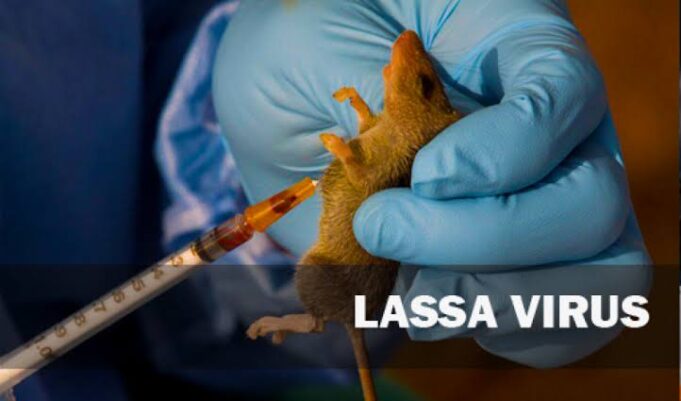The Nigeria Centre for Disease Control and Prevention (NCDC) has reported 80 deaths from 413 confirmed Lassa fever cases in 11 states between February 3 and 9, 2025.
The NCDC disclosed this via its website on Sunday, February 23.
The NCDC noted that the case fatality rate (CFR) rose to 19.4 per cent, up from 17.5 per cent in the same period in 2024.
The latest Lassa Fever Situation Report revealed that 73 per cent of confirmed cases came from Ondo, Edo, and Bauchi States, with Ondo leading at 34 per cent, followed by Edo at 21 per cent and Bauchi at 18 per cent.
It said 63 local government areas in the 11 states recorded confirmed cases.
The NCDC stated: “In spite of a drop in new cases from 68 in Week 5 to 54 in Week 6, the agency remains concerned about the high fatality rate.
“The affected age group is primarily 21 to 30 years, with a male-to-female ratio of 1:0.8.”
The NCDC said while no new healthcare worker infections were reported during the week, delayed case presentations had contributed to the rising fatality rate.
The NCDC pointed to poor health-seeking behaviour, high treatment costs, and limited awareness in high-burden communities as major challenges.
To address the outbreak, the NCDC said it activated the National Lassa Fever Multi-Sectoral Incident Management System (IMS) to coordinate efforts.
Lassa fever kills 10 in Ebonyi
It noted: “The key interventions include deployment of National Rapid Response Teams (NRRT) to Gombe, Nasarawa, and Benue.
“The interventions also involve training healthcare workers in Lassa fever case management in Bauchi, Ebonyi, and Benue, enhanced surveillance, and contact tracing in affected states.
“Additionally, there will be distribution of response commodities such as personal protective equipment (PPEs), Ribavirin, thermometers, and body bags, along with community sensitization and risk communication campaigns in hotspot areas.”
The agency stated that it was also collaborating with the World Health Organisation (WHO), Medecins Sans Frontieres (MSF), and the International Research Centre of Excellence (IRCE) to improve diagnosis, treatment, and outbreak response.
The NCDC urged Nigerians to take preventive measures, including maintaining proper hygiene, avoiding contact with rodent droppings, and seeking medical attention early if symptoms like fever, sore throat, and unexplained bleeding occur.
The NCDC also urged Nigerians to reduce their risk of infection by storing food properly in sealed containers to prevent rat contamination.
The agency stated that Lassa fever is preventable and encouraged Nigerians to stay informed and take action to protect themselves and their loved ones.
- Mother, daughter jailed for stealing ponmo - March 28, 2025
- Real Madrid coach Ancelotti to go on trial for tax fraud in Spain - March 28, 2025
- Court annuls rape conviction of ex-Barcelona star Dani Alves - March 28, 2025









